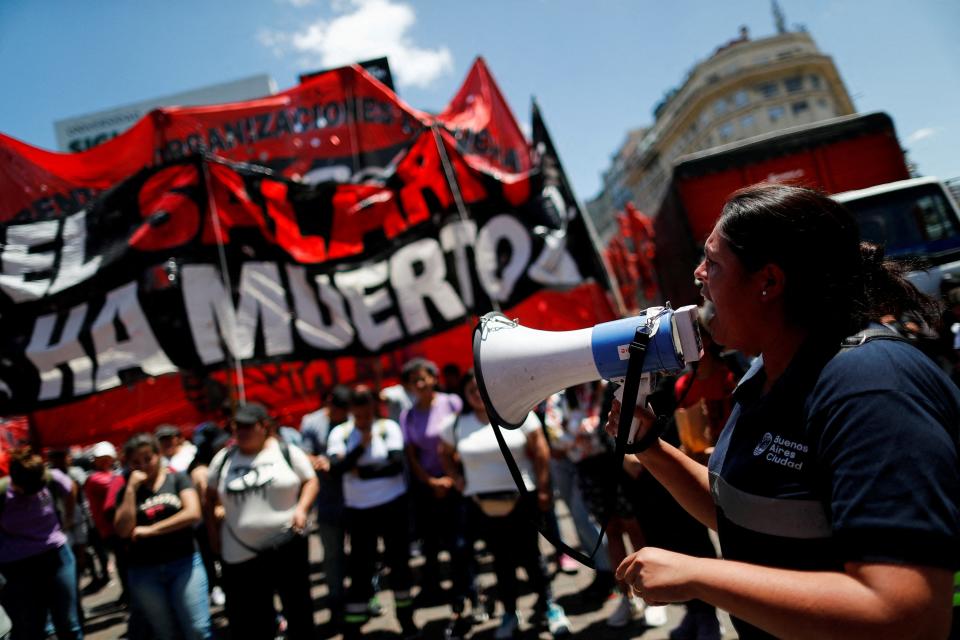Inflation hits a staggering 99% in Argentina even after spiraling food prices sparked street protests

Argentina's consumer inflation hit 99% in January, as prices of everyday goods doubled on a year ago.
Street protests have broken out as people struggle with soaring food, housing, and leisure costs.
The government is trying to cool the rate – but economists expect it to hover close to 100% for most of 2023.
People in Argentina are battling inflation of almost 100%, meaning that the average basket of shopping now costs nearly twice as much as it did a year ago.
Food, housing and leisure costs are still soaring, even after the government brought in price freezes for particular goods.
Argentina's Consumer Price Index hit an annual rate of 98.8% in January, government figures published Tuesday showed — a rough doubling of prices over the past 12 months. Economists had expected a reading of 98.3%, according to data from Refinitiv.
The country has the highest inflation of any member of the G-20 group of nations. Prices have skyrocketed to their highest rate since the period between 1975 and 1990, when inflation hit a staggering 300% year-on-year.
The Central Bank of Argentina even plans to bring in a new 2,000-peso ($10) bill as its largest banknote as people are forced to carry bigger wads of money.
The longrunning crisis has sparked widespread protests. In September, thousands took to the streets of capital city Buenos Aires to demand action from President Alberto Fernandez' left-wing government.
Inflation in Argentina rose 6% last month alone, compared with the 6.4% jump in the US over the past year. That means prices have risen at a rate of over 50% for 21 months in a row.
The price of food surged 98.4% year-on-year, while the costs of recreation, leisure and housing costs all increased at a faster pace than the broader index.
Policymakers have tried to rein in inflation with an unconventional set of policies. The government ordered manufacturers and retailers to freeze the price of 1,700 goods including food, drinks, and personal-hygiene products in November.
Meanwhile, the Central Bank of Argentina hiked interest rates by 550 basis points in September, raising the cost of borrowing to a staggering 75%. However, because price rises are outpacing that, many people still fear their money will be devalued if they leave it in a savings account.
But forecasters don't believe any of those methods are working, and many say that prices are likely to double again over the next 12 months.
"Inflation remains hot and widespread, and current policy measures — low real interest rates, price controls and an overvalued currency — aren't working to tame price pressures," Bloomberg economist Adriana Dupita said.
"We expect inflation to hover around 100% through most of the year," she added.
Read the original article on Business Insider

 Yahoo Finance
Yahoo Finance 